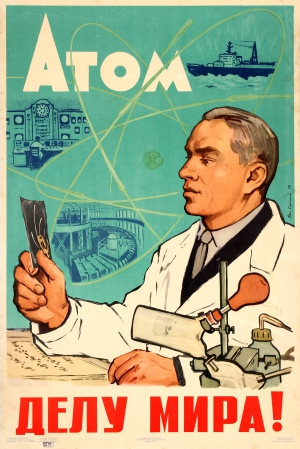The government of Saudi Arabia is feeling anxiety over the evident progress in nuclear talks between the United States and Iran. Indeed, as Riyadh’s regional rival moves closer to receiving international recognition for its nuclear program, the kingdom’s own nuclear aspirations seem to have stalled completely: a proposed U.S.-Saudi nuclear agreement has been at a standstill for six years. And the stalled talks are only one of several issues that have hurt the relationship between Riyadh and Washington in recent years.
The U.S.-Saudi nuclear talks were initiated in 2008, when then Secretary of State Condoleezza Rice and her Saudi counterpart, Prince Saud al-Faisal, signed a Memorandum of Understanding on Nuclear Energy Cooperation. At the time, many observers expected that the two countries were forging a new pillar for their 80-year-long strategic partnership. Indeed, Saudi Arabia soon announced its intention to build 16 nuclear power plants (at an estimated cost of $112 billion), which would have made it the world’s largest civilian nuclear program and generated tens of thousands of high-paying jobs for the kingdom’s growing population. Riyadh has justified its nuclear ambitions by pointing to the country’s dependence on oil and gas exports, which constitute 80 percent of national revenue; if Saudi Arabia could meet its own growing energy demands through nuclear energy, it wouldn’t have to curtail its sale of oil on the international market.
But before Saudi Arabia enjoys its first watt of nuclear energy, it needs to find partners who are willing to help build its nuclear infrastructure—and at the moment, the United States doesn’t seem willing to play that role. Washington has said that it would first need to reach an agreement with Riyadh on adherence to the Atomic Energy Act of 1954, a U.S. law that regulates nuclear commerce—and those efforts have stalled over the question of whether Saudi Arabia would be subject to the so-called Gold Standard provision that would proscribe Riyadh from enriching uranium or reprocessing plutonium.
Riyadh is unsurprisingly incensed at any suggestion that it wouldn’t be accorded the same right to enrich uranium that the United States effectively granted to Iran under the interim agreement between those two countries. Sources familiar with the negotiations say that Riyadh has argued that the Gold Standard represents an unacceptable infringement on its national sovereignty, emphasizing that the Nuclear Non-Proliferation Treaty, of which Saudi Arabia is a signatory, stipulates that countries have a right to develop peaceful nuclear energy.
The White House has so far seemed reluctant to offer any compromise….Complicating matters is the fact that Israel is likely to oppose any nuclear deal with Saudi Arabia that doesn’t adhere to the Gold Standard and will pressure its allies in Washington to do the same. (Israel tacitly approved the 2009 nuclear deal between the United States and the UAE, which was compliant with the Gold Standard.)
Saudi Arabia, should it fail to reach an understanding with Washington, might instead choose to partner with either France or Russia to develop its nuclear program. Last January, during a state visit by French President François Hollande to Riyadh, the French company Areva, the world’s largest nuclear firm, signed a Me moandums of Understanding with five Saudi companies that aim to develop the industrial and technical skills of local companies. Similarly, the CEO of Russia’s Rosatom, Sergei Kiriyenko, announced in July that Russia and Saudi Arabia expect to sign an agreement on civilian nuclear cooperation later this year. If Saudi Arabia follows through on these agreements, it would be to the detriment of U.S. companies—and, perhaps, the broader U.S.-Saudi strategic partnership.
At present, a compromise between Saudi Arabia and the United States seems unlikely…. [But] One promising precedent is the U.S.-Vietnam nuclear agreement of 2014, which allowed Hanoi to obtain any nuclear reactor fuel that it needs for its reactors from the international market, rather than produce the material itself—a model that was dubbed the Silver Standard. This arrangement would likely be acceptable to Riyadh, as it is consistent with the agreement that Rice and Faisal signed in 2008. It’s unclear, however, whether it would be acceptable to Congress. U.S. politicians who claim to fear “Saudi nukes”—or the prospect that Riyadh’s nuclear program could fall into the hands of Islamist extremists—are unlikely to accept anything short of the Gold Standard.
Excerpt, Sigurd Neubauer, Saudi Arabia’s Nuclear Envy, Foreign Affairs, Nov. 16, 2014


